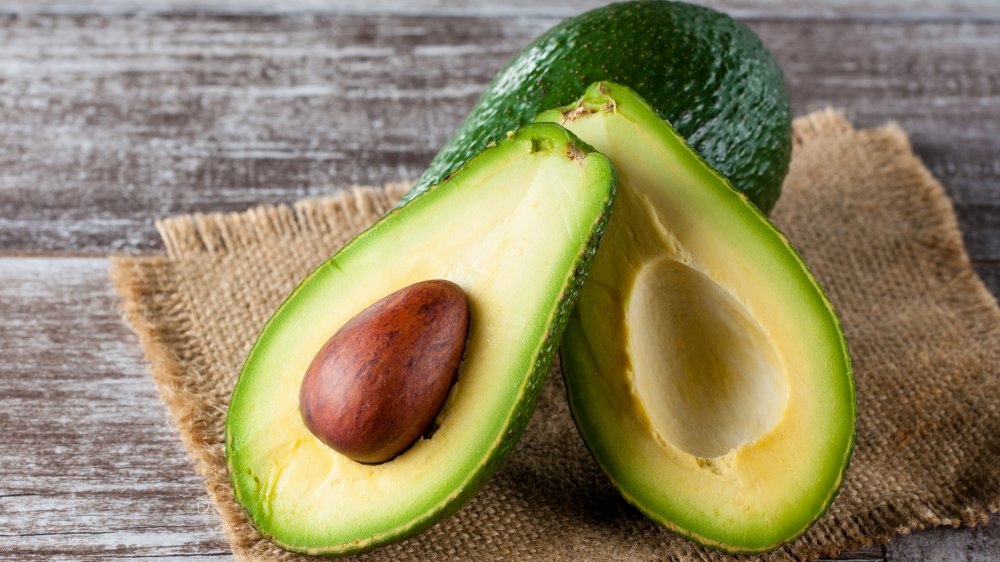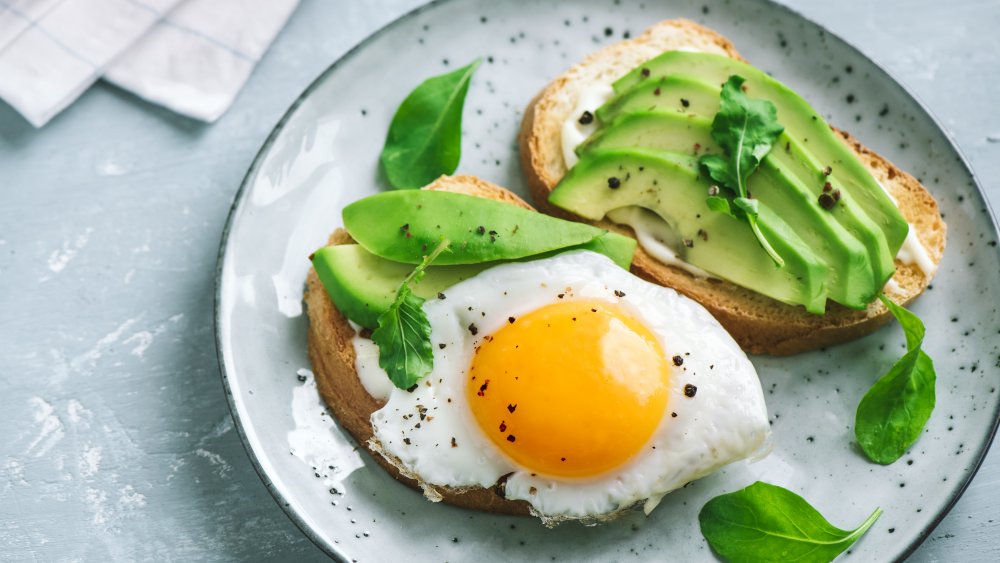What Happens To You When You Start Eating More Avocado
With its bright green color and creamy texture perfect for pairing with salads and toast, avocado has broken away from just being the smooth sidekick for chips and salsa (although who doesn't love a hearty guacamole?). The demand for avocados in the United States has tripled over the past two decades, with Americans consuming about 8 pounds of avocados per person in 2018, the U.S. Department of Agriculture says. For farmers, that means producing about 364 million pounds (via the USDA).
But are avocados truly all they're cracked up to be? All that and more, nutritionists say, noting that avocados contain about 20 different vitamins and minerals, as well as healthy fats and fiber. One cup of avocado contains 39 percent of the recommended daily value (DV) of vitamin K, 30 percent of the DV of folate, 25 percent of the DV of vitamin C, 21 percent of the recommended DV of potassium, 19 percent of the DV of vitamin B6, and 16 percent of the DV of vitamin E (via Nutrition Data).
No wonder this superfood turns others green with envy (via Healthline)! Research shows that people who need to boost their potassium to lower blood pressure and reduce their risk of stroke, heart attack, and kidney failure will ingest more potassium by eating an avocado than a banana (via the National Library of Medicine).
Avocados are heart-healthy and rich in fiber
In addition to being a potassium powerhouse, avocado contains lots of heart-healthy monounsaturated fatty acids. These fats are associated with reducing inflammation and have beneficial effects on genes linked to cancer, one reason nutritionists tout avocado oil as a healthy cooking choice.
What else happens to your body when you eat more avocado? You feel full faster and reduce spikes in your blood sugar. A 3.5-ounce serving (nearly a half cup) of avocado contains 7 grams of fiber, or 27 percent of the recommended DV, most of it insoluble fiber.
Insoluble fiber moves intact through the digestive system, preventing constipation and helping you feel satiated for longer after meals (via Medical News Today). As soluble fiber dissolves, it slows the digestion of carbohydrates, leveling out spikes in blood sugar. It also lowers cholesterol levels in the blood and reduces fat absorption, helping with weight management.
Several studies show that test subjects who ate avocados lowered their levels of LDL (or bad) cholesterol and triglycerides (a type of fat stored in the blood); they also increased their levels of HDL (or good) cholesterol, overall reducing their risk of heart disease.
Adding sliced or mashed avocado to your diet is easy, even without the chips. The rich, fatty texture blends well with a number of ingredients. Just squeeze a little lemon juice on your avocado to prevent it from browning quickly.

